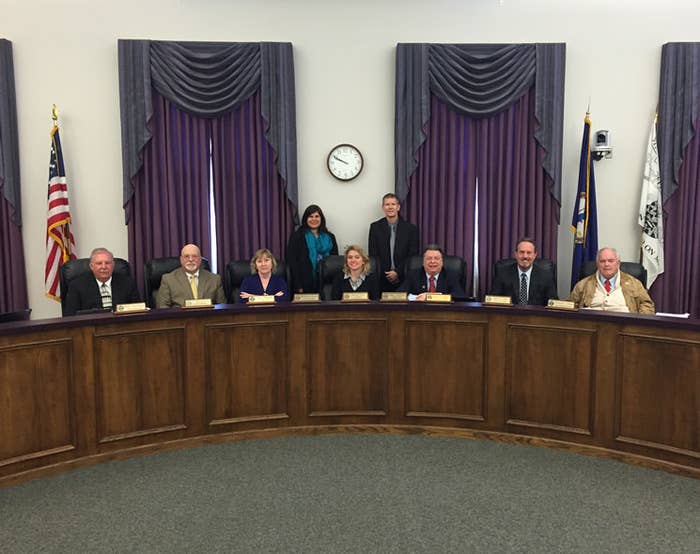
An Islamic center in Virginia have reached a settlement agreement with Culpeper County that will allow them to build a mosque — after local officials rejected the group's sewage permit, despite approving similar permits 26 times since 1992.
Nine of those 26 sewer permit approvals were granted to churches.
In December 2016, the Justice Department filed a lawsuit against Culpeper County, alleging that local officials violated federal law and placed “a substantial burden on the religious exercise of the" the Islamic Center of Culpeper.
The suit also said the county discriminated “against the ICC and its members on the basis of religion,” and treated the center “differently from other applicants on the basis of religion or religious denomination.”
These actions, the DOJ said, would be violations of the Religious Land Use and Institutionalized Persons Act of 2000 (RULIPA) — an act passed by Congress in 2000, designed to “protect individuals, houses of worship, and other religious institutions from discrimination in zoning and landmarking laws.”
Across the US, civil liberties advocates argue that zoning laws have been used to deny the building of mosques. In 2015, Eric W. Treene, Special Counsel for Religious Discrimination at the Civil Rights Division of the DOJ, wrote that discriminations regarding mosques have been an unusual focus of the department. "The DOJ has seen a disproportionate number of cases involving mosques and Islamic schools," Treene wrote in a report published by the American Bar Association.
In a vote of 4–3 on Tuesday evening, the Culpeper County's Board of Supervisors voted to accept the settlement, which agrees to approve the sewage permit, and pay the ICC $10,000 for "out-of-pocket expenses," the settlement says.
“This is a victory for religious freedom,” said Johnathan Smith, legal director of Muslim Advocates, a national legal advocacy that represented the ICC, in a statement to BuzzFeed News. “The county’s vote represents a commitment to allowing the ICC to build its house of worship free from discrimination.”
"We can finally move ahead and start building our mosque so we can fully meet the needs of our religious community," said the ICC's director, Mohammad Nawabe. "Our members have lived in Culpeper County for decades, and all we have ever asked for is to be treated the same as everyone else.”
On April 5, 2016, the Culpeper County Board of Supervisors voted 4–3 against granting a pump-and-haul sewage permit to the ICC, which has never had an official house of worship. Such a permit is required for properties that are not attached to an existing sewer system.
Members in the audience cheered as Culpeper County Supervisor Bill Chase moved to deny the sewer permit request, as seen in a video of a board of supervisors meeting. Another supervisor at the meeting, which opened with a Christian prayer, said that a “majority of the calls and emails” she received were because of “the religion” and not for “pump and haul or environmental reasons.”
Muslims in the area currently pray in a small structure on the property of a used car dealership. The closest mosque, according to the December DOJ complaint, is around 45 minutes by car.
“The house has a single room, and it is too small to host events that attract additional worshippers, such as the celebrations of the holidays of Eid al-Fitr and Eid-ul-Adha,” the complaint reads, referring to two of the most important Muslim holidays.
Previously, Culpeper County sought to have the case dismissed in March, arguing, in part, that the denial of the permit did not stop the possibility of the ICC building a mosque in the county. The judge, in a memorandum opinion, disagreed. He wrote that “the facts alleged leave the impression that the County’s permit denial was based on religious hostility, and that the denial substantially burdened the ICC’s ability to exercise its religion.”
